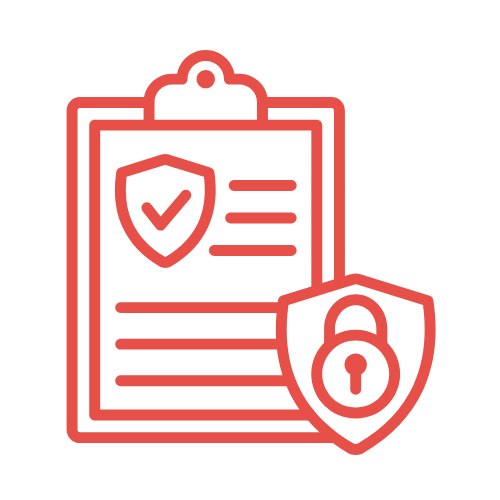Strengthening Patient Data Access: New Information Blocking Rules and Enforcement Actions
- Home
- Insights
- News & Trends
- Strengthening Patient Data Access: New Information Blocking Rules and Enforcement Actions
Information Blocking
News & Trends
Recommended Reads

Data Collection
As the data collection methods have extreme influence over the validity of the research outcomes, it is considered as the crucial aspect of the studies

Strengthening Patient Data Access: New Information Blocking Rules and Enforcement Actions
Table of content
- 1. Strengthening Patient Data Access: New Information Blocking Rules and Enforcement Actions
- 2. Strengthening Enforcement Against Information Blocking
- 3. Proposed Disincentives for Healthcare Providers
- 4, Final Rule on Protecting Care Access
- 5. Legal Challenges and Industry Pushback
- 6. Implications for Healthcare Stakeholders
- 7. Statswork Viewpoint on Patient Data Access and Information Blocking
- 8. Conclusion
April 2025 | Source: Reuters
As digital health records become a cornerstone of patient care, healthcare regulatory authorities have been focused on ensuring health records can be accessed promptly. Recently, actions and news, including enforcement efforts and new information blocking rules, show support for data sharing and patient empowerment.

Strengthening Enforcement Against Information Blocking
- The HHS Office of Inspector General (OIG) began enforcing anti-information blocking rules beginning September 1, 2023.
- Civil financial penalties of up to $1 million per violation have been put in place for health IT companies that stymie data access.
- Examples of information blocking included:
- Not satisfying requests to access data.
- Requiring unreasonable terms and conditions for sharing data.
- Charging exorbitant fees that inhibit the sharing of health information.
- Enforcement will focus on cases that create harm to the patient, negatively impact the provider’s ability to provide care, or financially harm federal healthcare programs.

Proposed Disincentives for Healthcare Providers
In October 2023, HHS suggested new financial disincentives for health care providers involved in information blocking:
- A 75% reduction in the market basket update for hospitals in the Medicare Promoting Interoperability Program.
- A reduction for critical access hospitals from 101% to 100% to reflect reasonable costs.
- Clinicians who share in MPS would score a zero in the promoting interoperability performance category.
ACO providers set up to be in violation would lose eligibility for at least one time in the Medicare Shared Savings Program and lose any earned profit.

Final Rule on Protecting Care Access
On December 16, 2024, HHS issued a final rule enforcing provisions regarding information blocking exceptions. The final rule contains the “Protecting Care Access Exception,” which permits entities to restrict EHI sharing in certain circumstances to alleviate legal risk for patients and providers of lawful reproductive health services. The rule allows for the balancing of patient privacy/concerns against the need for data interoperability.

Legal Challenges and Industry Pushback
In September 2024, the American Hospital Association (AHA) and the Electronic Health Record Association (EHRA) challenged a Maryland court ruling that permitted a private lawsuit under federal information blocking rules.
- The top accounts offered are as follows:
- The enforcement of the information blocking law should be held solely by HHS and not private entities.
- There’s legal nebulosity that may produce complications in compliance and enforcement conditioning.
- Other healthcare organizations express similar concerns, such as:
- The penalties would arguably be unfair and punitive.
- It would hinder participation in value-based care programs.
- The American Medical Association (AMA) is recommending education rather than penalties, especially for small and independent practices.

Implications for Healthcare Stakeholders
The reinforced enforcement of information blocking laws amplifies patient access to data and the imperative for timely and complete access. Healthcare providers and information technology (IT) developers must comply with the 21st Century Cures Act and the HHS regulations to avoid significant penalties, which include standardized data formats, timely responses to requests for penetrating data, and barring unreasonable barriers to participating in this information.
As the healthcare industry is digitized, balancing data interoperability with patient privacy is a key issue. Healthcare organizations must keep their eye on constantly evolving regulations and make efforts to comply with federal regulations, which will help improve patient care and help build trust in the healthcare system.

Statswork Viewpoint on Patient Data Access and Information Blocking
- Regulatory Focus: Strong enforcement of information-blocking rules aims to enhance patient access to health records, with penalties being imposed that can reach $1 million for violations.
- Financial Penalties: Proposed financial incentives provided to healthcare providers, like reduction of Medicare payments, supposedly to encourage compliance, are also a cause of concern for small practices.
- Interoperability: The Protecting Care Access Exception is intended to allow some data sharing but also to address important privacy issues that arise in some sensitive health situations, such as reproductive health.
- Industry Concerns: Complaints expressed from stakeholders, such as AHA, question the uncertainty that enforcement will create and how enforcement will affect health care practices.
- Stakeholder Implications: The Changing regulations, hence healthcare providers and IT developers’ need to adapt, are essential to ensure compliance and to enhance data sharing, therefore benefiting patient care.

Conclusion
The enterprise to annihilate information blocking and meliorate patient access to their health records has dramatically changed the terrain of managing health data. With the recent emphasis and new penalties surrounding information blocking, healthcare providers and IT developers will be responsible for the information that is restricted from its flow. When implementing new exceptions, such as the Protecting Care Access Exception, the agency appears to be walking a fine line between privacy and interoperability.
Ensure compliance with the latest information blocking rules to avoid hefty penalties and enhance patient care. Stay updated with evolving healthcare regulations to improve data access and interoperability.
